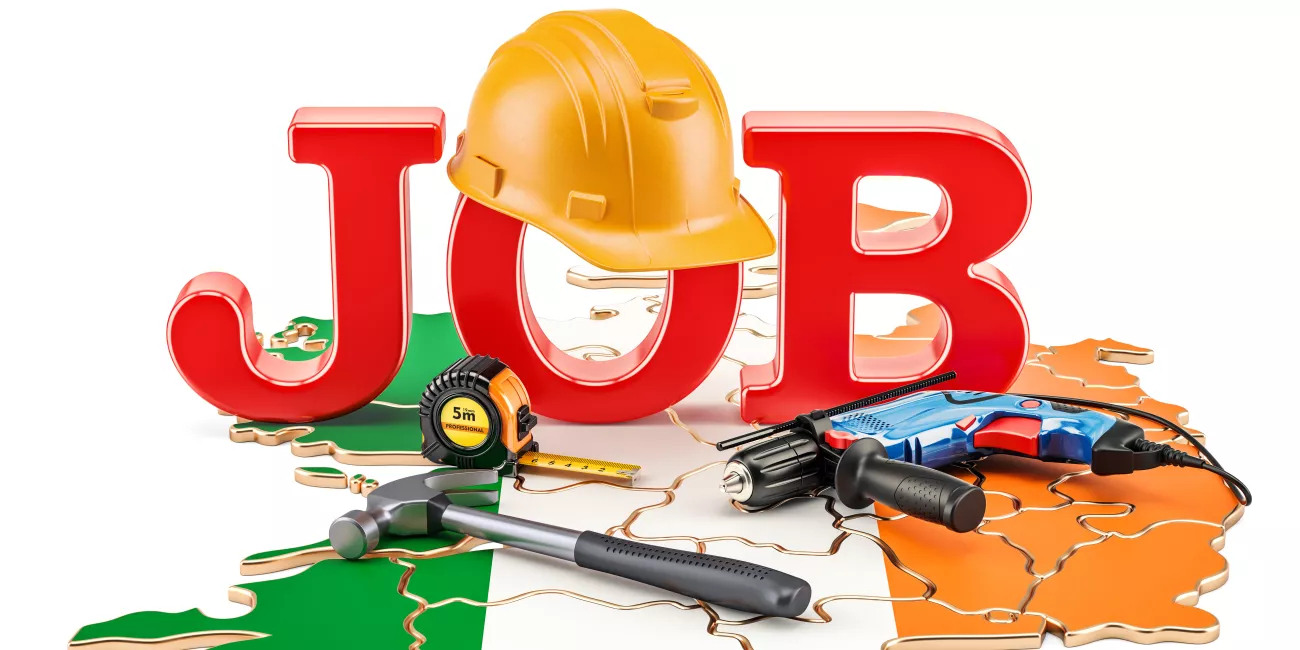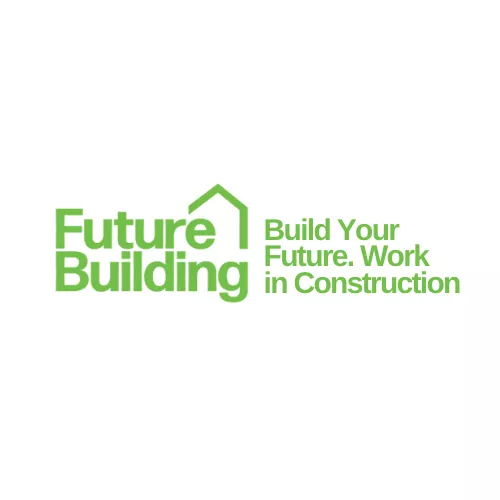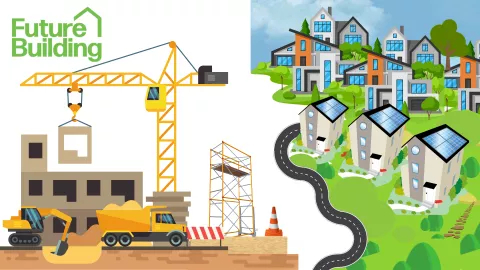Over dit evenement
Are you interested in job opportunities in the construction industry? Construction in Ireland is a sector with a lot of job opportunities. Under the ‘Housing for All’ plan, the Irish Government has set a target of building an additional 33,000 new homes per annum for the remainder of the decade and to retrofit 500,000 homes by 2030. Ireland will need 7,500 additional workers in this sector, each year. We are seeking workers from Ireland and Europe as well as qualified international candidates. ‘Building Ireland’s Future: Careers in Construction 2025’ online recruitment day is a great opportunity for you to find a job in the construction and engineering sector.
The following is a sample of the types of roles that will be available:
- Engineering Support
- Quantity Surveyors
- Construction Project Managers
- Site Managers/Site Engineers
- Electricians
- H&S Officers
- Plumbers
- Electrical Engineers
- Concrete workers
- Plasterers
- General Operatives
1. Browse and apply for jobs before the event.
Register in advance, upload your CV and apply for any suitable jobs advertised for this event. Employers will review your applications and can invite you for an online job interview. To register – click here or watch this video tutorial. Registration will open for Jobseekers on Monday 23rd September, when you will be able to register and upload your CV.
2. Find out how to succeed in finding a job in Ireland
On Thursday, 7th of November, you can join the online interviews with employers and virtually attend a programme of interesting presentations. You can watch employers’ presentations, learn about living and working conditions in Ireland, financial grants available to you if you move for work in Ireland and get some help with the application process.
3. Talk to us!
Chat online with us and ask us questions about finding work in Ireland.
In order to participate online, you need to register for the event in advance. Click here to create a new account and register for the event or log in to your account if you already have one to join.
Are you an Irish employer looking to recruit candidates from across the EU?
A range of recruitment services will be available to employers, including publishing vacancies on the event’s website, automatic screening/matching/interview scheduling in advance of the event and jobseekers will be waiting to speak with you on the day. The event will be widely advertised in Europe through targeted social media campaigns, social media platforms, and online. It will be also available to attend for all jobseekers from Europe and outside of EU/EEA who register on the European Job Days platform.
In order to participate in the online event, you need to register and upload your jobs in advance of the event. Registration for employers is now open. Once you have registered and advertised your vacancies, we will promote your jobs to jobseekers in Ireland, across Europe, and beyond.
Save the date and join us online on Thursday 7th November 2024!
For more information email: eures@welfare.ie / futurebuilding@welfare.ie
https://jobsireland.ie/en-us/construction
Information for Jobseekers: How to participate in this event
- In order to participate in this recruitment event, you need to register in advance of the event. Registration opens on Monday 23 rd September.
-
Apply for posted jobs in advance of the event!
You can now browse and view jobs that match your profile, make contact with employers and book one or more job interviews. Make sure that you upload your CV in English. Interviews with employers will be taking place on this platform on 7th, 8th or 11th November.
REMEMBER: Registering for this event and uploading your CV is not enough. If you want employers to view your CV and be able to invite you for an interview, you must apply for the job vacancy directly and before the day of the event.
- Attend your scheduled interviews.
Companies may invite you for one or more online interviews. In the case where you are pre-selected, you will get a notification by the employer(s) on possible time-slots for the interview, to which you should answer as quickly as possible.
Log in to www.europeanjobdays.eu regularly to check if you have any interview invitations pending and check your email. Confirm your availability for online or onsite interview. Check ‘How to join a job interview’ on your dashboard when you log in to www.europeanjobdays.eu. On the day of the event – log in and join your virtual interview. -
On 7th November, you can join us online for some great presentations and chats with exhibitors!
Presentations will include:
- Employers presentations;
- Financial supports available for you if you relocate for work to Ireland;
-
Presentation on various aspects of Living and Working in Ireland.
You can also interact and ask questions to the presenters via live chat. During the event, employers and EURES Advisers will be available online on a chat to answer your questions. If you don't have any pre-set interviews, this may be still your chance to get more information on job requirements and to apply for jobs of some interest to you.
If you have any questions before the event, you can contact EURES Ireland at: eures@welfare.ie
Moving to Ireland: Before you come to Ireland
Introduction
Before you come to Ireland, you need to know if you are entitled to live here. Your right to live in Ireland depends mainly on your nationality and what you intend to do when you come here.
Visas and permission to enter Ireland
There are some general rules which apply regardless of the reason why you are coming to Ireland.
UK nationals: People who are citizens of the United Kingdom (UK) are entitled to live in Ireland without any conditions or restrictions.
EEA and Switzerland: In general, nationals of EEA countries or Switzerland, have the right to enter Ireland. You do not need a visa but you will need a valid passport or identity card in order to land. You are generally entitled to live in Ireland if you are employed or self-employed. You can to come here to study or retire here if you meet certain conditions.
Your family can come to Ireland too, but they may need a visa to enter Ireland if they are not EEA or Swiss citizens themselves.
Other countries: Citizens of other countries may need to apply for a visa. If you need a visa or not, you will still need permission to enter in Ireland and permission to remain here.
Coming to Ireland to work
You may need an employment permit to work in Ireland, or permission to open a business, if you are not in one of the categories below:
UK citizens can live and work in Ireland without restriction. If you have family members who are from outside the UK, EEA or Switzerland, they must apply to join you in Ireland.
EEA and Swiss citizens have the right to work or set up a business in Ireland. You are entitled to be treated in the same way as Irish workers. You can have family members come with you to Ireland.
Younger people from certain countries outside the UK, EEA or Switzerland can apply to come to Ireland on a working holiday.
Coming to Ireland to study
You may need to apply for a student visa before you come to Ireland to study. If you don’t need a visa, you still need permission to enter Ireland. This means you must show that you satisfy the conditions to study in Ireland. Different rules apply for short-term courses.
General information about living in Ireland
Returning to Ireland: Our section on returning to Ireland has information about what you should know if you are planning on returning to Ireland after living abroad.
Retiring in Ireland: Find out about returning to Ireland to retire, or moving to Ireland to retire.
Government: Ireland is a parliamentary democracy. All residents have the right to vote in local elections and EU citizens also have the right to vote in European elections. UK citizens have the right to vote in national elections as well. Read further information about the national government and local government.
Tax and social insurance contributions: If you are working or self-employed you must pay PRSI contributions in the same way as Irish people. If you are resident in Ireland, you may be liable for income tax and for capital taxes. There are specific rules about residency for tax purposes.
Education: Free primary education and secondary education is available to all children aged under 18 legally resident in Ireland. There are also some fee-paying primary and secondary schools available. School attendance is mandatory until the age 16.
Equality: Ireland has equality legislation that prohibits discrimination in employment and access to services on a number of grounds including nationality and race.
Housing: Some people live in owner-occupied private housing while a number live in private rented accommodation. Social housing is available, but you generally need to have been resident in Ireland for a period of time before you become eligible for it.
Health services: If you are ordinarily resident in Ireland, you may be entitled to a range of health services that are either free of charge or subsidised by the Government. There is also a range of private health care services. Your permission to stay in Ireland may include a requirement that you have private health insurance.
Social security entitlements: If you are moving to Ireland you need to know about your social security entitlements. EEA and Swiss nationals come under the general rules on social security for migrant workers.
There are social security arrangements with a small number of other countries. These generally allow contributions in the other countries to be combined with your Irish contributions to enable you to qualify for benefits.
Social assistance payments: Everyone, including Irish citizens, has to meet the habitual residence requirement if applying for a social assistance payment. Different rules apply to EEA citizens.
Pets: There are regulations about importing pets from abroad, so you need find out about the procedures for bringing your pet to Ireland.
Customs: There are customs regulations about the importation of prohibited or restricted goods and Customs and Excise officers have the power to carry out searches of the baggage of people travelling to Ireland.
Driving, cars and transport: Full driving licences from all other EU member states (and some other countries) are recognised for use in Ireland. You should find out if you need to convert your driving licence to an Irish one. If you want to bring your car to Ireland you need to know about importing a car and implications for Vehicle Registration Tax (VRT).
Further information
You can get further information from your nearest Irish embassy or consulate or the embassy or consulate of your country in Ireland.
Are you a Non-EU National?
In order to work in Ireland a non-EEA National, unless they are exempted, must hold a valid Employment Permit. Depending on your nationality, you may also be required to apply for a visa.
The Department of Enterprise, Trade and Employment administers the Employment Permits system.
The Department of Justice administers the Irish Immigration system.
Employment permits
In order to work in Ireland a non-EEA National, unless they are exempted, must hold a valid employment permit. The department's Employment Permits Section administers the employment permits system.
Eligibility and requirements
Information for applicants on eligibility and requirements
Types of permits
Details of the nine different types of permits
Applying for a permit
The Employment Permits Online System (EPOS) allows applicants for Employment Permits and Trusted Partner Registrations to apply, make payments and submit supporting documentation online. The step-by-step User Guide (PDF, 1.9MB) (also available in the footer information of the EPOS system) includes the documentary requirements for each application type.
The online application system for employment permits brings a number of significant benefits:
- faster turnaround of applications
- easier, online submission of supporting documentation
- secure online fee payments (where applicable) by credit/debit card
- as the system continuously validates your data and supporting documentation there will be fewer errors and rejected applications
- intuitive user experience with help information and relevant mandatory fields
Please submit applications online to avail of these benefits.
The department welcomes feedback on the online process. If you have any comments or issues you can email us at the dedicated email account epos@enterprise.gov.ie.
Application checklists
Use the appropriate checklist to help with your permit application: Checklists to assist with permit applications
Application deadlines
Any employment permit application where a Labour Market Needs Test is required must have published a EURES ad for at least 28 days before a valid application can be submitted. An application for any employment permit must be received at least 12 weeks before the proposed employment start date. EPOS has a cut-off deadline of 28 days from starting any application to submitting it. If an application form has not been submitted or completed within 28 days, it is deleted. This is for data protection purposes. In such instance, it is not possible to retrieve the application and the applicant must begin the application process again. A contract of employment signed by both parties must be submitted with each application.
Please note: The vast majority of construction jobs are eligible for work permits in Ireland.
Any jobs listed under the Ineligible List of Occupations - DETE (enterprise.gov.ie) are not eligible for work permits in Ireland.
Critical Skill work permit: If you have any of the critical skills listed on the eligible occupations list (e.g. Architects, Town Planners and Surveyors, Engineering Professionals), you or your Irish employer can apply for a critical skills work permit.
If you are a Construction or Engineering Professional: email your CV to: futurebuilding@welfare.ie
Contact Information
Contact the Future Building Team: futurebuilding@welfare.ie
Contact the EURES Ireland Team: Eures@welfare.ie
Information for Jobseekers from Finland
🧱 Are you interested in moving to Ireland to look for employment opportunities in the Construction Industry?
🔨 On this broadcast TE-live introduced job opportunities within the construction sector in Ireland and interviewed an employer.
👩🚒 Irish EURES specialist Audrey McPartlin spoke about the possibilities construction work can offer you in Ireland.
We also looked at practical things while living in Ireland such as work permits, 🚑 health care and 🏠 accommodation.
📽 Watch the TE Live Broadcast https://vimeo.com/1025166104/ce078a0140?ts
🍀 Coming to Ireland to work 🍀
EEA and Swiss citizens have the right to work or set up a business in Ireland. You are entitled to be treated in the same way as Irish workers. You can have family members come with you to Ireland.
Visas and Permission to enter Ireland
EEA and Switzerland: In general, nationals of EEA countries or Switzerland, have the right to enter Ireland. You do not need a visa but you will need a valid passport or identity card in order to land. You are generally entitled to live in Ireland if you are employed or self-employed. You can come here to study or retire here if you meet certain conditions.




